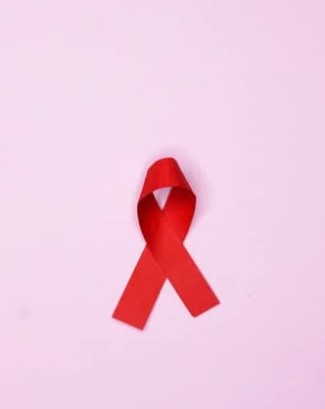You’ve probably heard the terms HIV and AIDS used together, sometimes even as if they mean the same thing. But they don’t.
Understanding the difference is important, not just for accuracy, but because the words we use can shape how people living with HIV are treated and perceived.
What Is HIV?
HIV stands for Human Immunodeficiency Virus.
It’s a virus that attacks the immune system, the body’s natural defence against illness.
With the right treatment, people living with HIV can live long, healthy lives and never pass the virus on to others.
Modern HIV medication (called antiretroviral therapy, or ART) keeps the amount of virus in the blood so low it’s undetectable. When HIV is undetectable, it cannot be passed on, a fact summed up in the phrase U=U (Undetectable = Untransmittable).
What Is AIDS?
AIDS stands for Acquired Immune Deficiency Syndrome.
AIDS is the name for a collection illnesses that are caused by the HIV virus. We now don’t use the term AIDS and now call it late-stage or advanced HIV. In the UK, most people living with HIV and on treatment do not reach this stage. HIV is a manageable long term health condition.
People on treatment can expect a normal life expectancy and can have relationships, families, and careers just like anyone else.
Medication: What’s the Difference Between PrEP and PEP?
PrEP (Pre-Exposure Prophylaxis) and PEP (Post-Exposure Prophylaxis) are both medications that help prevent HIV, but they’re used at different times.
PrEP is taken before possible exposure to HIV, as an ongoing pill that protects you if the virus enters your body.
PEP is taken after potential exposure (for example, if a condom breaks or after unprotected sex) and must be started within 72 hours.
Both are highly effective when taken correctly — and are available free from Essex Sexual Health Service.
🗣️ Why Language Matters
Outdated language around HIV and AIDS can cause real harm.
Phrases like “AIDS victim” or “infected person” are not only inaccurate, they reinforce stigma and fear that belong to the past.
When we talk about HIV, we should use language that’s:
- Respectful: Say “a person living with HIV,” not “an HIV sufferer.”
- Accurate: HIV is the virus; AIDS is a late stage of HIV infection.
- Empowering: Highlight that HIV is treatable and untransmittable with medication.
Language has power. Using the right words helps challenge stereotypes, reduce stigma, and show support for people living with HIV.
Support in Essex
If you’re living with HIV, or supporting someone who is, the Essex HIV Support Service provides free and confidential help across the county.
They offer emotional support, peer connection, practical advice, and guidance on living well with HIV.
👉 Find out more about the Essex HIV Support Service here.
Let’s Talk Openly
At Essex Sexual Health Service, we believe open, informed conversations about HIV can help end stigma for good.
Testing, treatment, and support are all free and confidential, and knowing your status is a positive step towards protecting your health and others.
👉 Learn more here.


